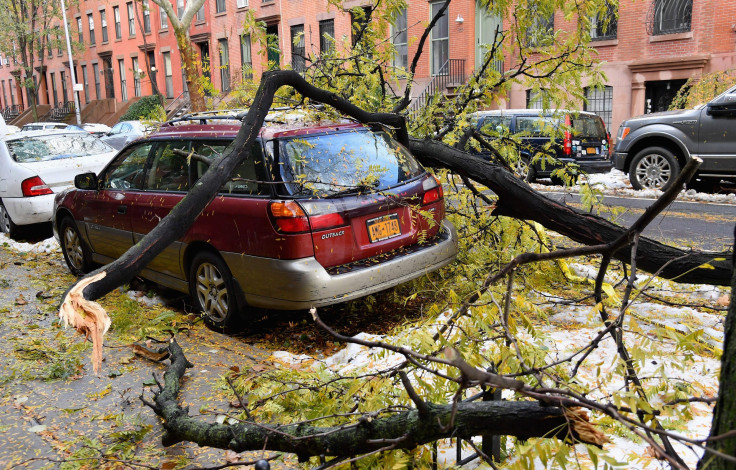Extreme Weather: Unforgiving Winds Hit East Coast Hard After Devastating Central US

After a weekend of punishing, abrasive winds in the Central states and Southern states along the Gulf Coast, a major storm system to is making its way through the Northeast and Mid-Atlantic.
Less than a week after Winter Storm Petra ravaged the U.S., affecting 90 million people nationwide, a report released by the National Weather Service on Monday morning projects high winds along the upper East Coast could create blizzard conditions for residents of the Great Lakes region.
Northeastern and Mid-Atlantic states have already experienced furious, blustering winds, with bursts in major East Coast cities, mostly in New England, measuring anywhere from 50 to 70 miles per hour.
As these winds continue, major airport delays are expected in Boston, New York City, Philadelphia and Washington, D.C.
High wind advisories are also in place in cities and towns dotted along the Central and Southern Appalachians.
The Northern Plains to the Midwest can expect temperatures to be 40 degrees below average.
Areas expected to be affected by more snow include areas in the Upper Plains and near the Great Lakes, where piles of snow from 20 to 30 inches high have already been recorded.
Over the weekend, eight tornadoes were reported in Southern states located around or near the Gulf Coast, barreling through Mississippi, Alabama and Georgia, leaving destruction and debris.
Columbus, Mississippi, was hit especially hard, resulting in the first tornado-related death of 2019.
Tennessee and Mississippi suffered the heaviest rainfall, with a reported 8 to 10 inches causing riverbanks to overflow. Brimming banks have also resulted in flash flooding in areas already affected by the storms.
While the East Coast is being pummeled by raging winds, the West Coast will fare no better. Heavy precipitation from the Cascades range in the Pacific Northwest to the Sierra Nevadas is expected at the beginning of the week due to a persistent moisture plume, with snow predicted in colder areas.
The precipitation will not fare kindly on regions already plagued with mudslides and flooding, especially in Northern California.
© Copyright IBTimes 2025. All rights reserved.





















